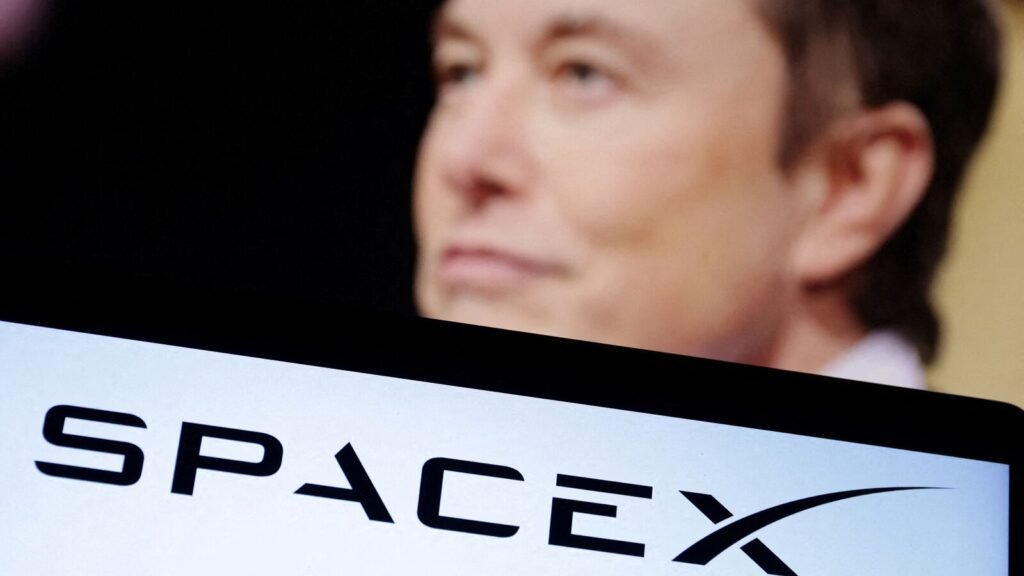Can Indian space startups wow Musk with indigenous tech?

At least four Indian space startups have received invitations from the Indian National Space Promotion and Authorization Centre (IN-SPACe) to meet SpaceX and Tesla founder Elon Musk during his upcoming visit to India, according to three industry executives, seeking anonymity.
The meeting will allow India’s private sector to showcase its indigenous space technologies before Musk. “There is little likelihood of the meeting leading to business partnerships, but it would enable the private space sector in India to meet one of the most impactful people in today’s space industry,” one of the three executives said.
The four space startups expected to attend the meeting in New Delhi on 22 April include Dhruva Space, Pixxel, Skyroot Aerospace and Peak XV Ventures-backed space mapping startup Digantara. The invitations were accompanied by confidentiality clauses since the event will be held behind closed doors, the executives said.
“Rather than striking immediate business opportunities with SpaceX, the meeting will showcase the work that private space companies have done so far. It will be an opportunity for select domestic space startups to showcase their work, and underline India’s objectives to contribute to the global space economy. In the long run, this could aid possible synergies between SpaceX and Indian firms,” a second executive said.
India’s space ecosystem is still at a nascent stage, but has evolved considerably since the privatization of the sector in 2020. Google-backed Pixxel, which has secured $71 million in funding so far, is building high-resolution imaging satellites to offer data analytics across industries.
However, Hyderabad-based Skyroot leads the pack as India’s most-funded private space startup, having raised $95 million so far. It is developing a range of cost-effective small rockets, designed to launch satellites for global clients on demand.
While the global space economy is dominated by the US, according to a joint study by Indian Space Association (ISpA) and EY India, India’s market share stood at just 2% at the end of 2022. However, space sector revenue is expected to increase significantly to $13 billion by 2025, it added.
In a separate development, last October, IN-SPACe chairman Pawan Goenka outlined a decade-long vision for India’s private space sector, suggesting that the industry could contribute up to 8% of space revenue to reach $44 billion by 2033.
Musk’s SpaceX, meanwhile, is the largest private sector contributor to space revenue. A Bloomberg report from November, citing internal documents, projected SpaceX’s 2023 revenue at nearly $9 billion, with satellite launches accounting for around $3.5 billion. Revenue projections are expected to reach $15 billion this year, with rocket launches contributing $6 billion or more.
“Musk’s insights could be crucial for the private sector to understand how the services may develop over time, and what could be the key insights for success. More than a business meet, this could be a key industry opportunity for private startups—who can make their services and outlook more mature after this,” said Anil Kumar Bhatt, director general, ISpA.
Industry experts, however, noted that the government’s involvement will be crucial for the success of the private space sector in India.“The US private space economy grew off the back of mega contracts from the central government, which is tantamount for a sector like space to succeed,“ said Chaitanya Giri, an associate professor of space studies at Pune’s Flame University.
“India will need to offer clarity on the role that the public sector NewSpace India Ltd (NSIL) will play, alongside private operators, as well as the kind of technology and vendor transfer that will take place between the government and private firms,” he added.
“The government is right now taking space contracts through NSIL to ensure there is global confidence in offering commercial projects. These contracts are then offered as subprojects to private firms to help them build capability and reputation. Once they develop, the Centre will be more than happy to let private firms take projects independently,” Goenka said in an interview on 22 February.
